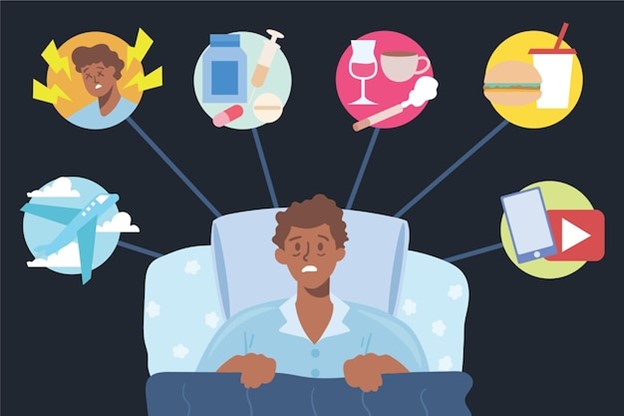Sleep is a vital component of our overall health and well-being, and the environment in which we sleep plays a significant role in determining the quality of our rest. In South Africa, like any other country, various environmental factors can either promote or hinder a good night’s sleep. Understanding and optimizing these factors can have a profound impact on sleep quality and overall wellness. In this article, we will explore the impact of environmental factors on sleep quality in South Africa and provide strategies for creating a sleep-friendly environment.
- Noise Pollution: Excessive noise can be a significant disruptor of sleep. In urban areas, South Africans may be exposed to traffic noise, construction sounds, or loud neighbors, all of which can make it challenging to fall asleep and stay asleep. Consider using earplugs or a white noise machine to mask unwanted noises and create a more peaceful sleep environment. Additionally, soundproofing your bedroom with curtains or carpets can help reduce the impact of external noise.
- Light: Light exposure plays a crucial role in regulating our sleep-wake cycles. In South Africa, where natural light varies throughout the year, it is important to manage light exposure to promote healthy sleep. During the day, seek natural light exposure by spending time outdoors or near windows. In the evening, dim the lights in your home and avoid exposure to bright screens, as the blue light emitted by electronic devices can suppress the production of melatonin, a hormone that regulates sleep. Consider using blackout curtains or an eye mask to create a dark sleep environment that promotes better sleep.
- Temperature and Humidity: The temperature and humidity levels in your bedroom can significantly impact sleep quality. South Africa experiences varying climates, from hot and humid summers to cooler winters. Aim for a bedroom temperature between 18-22°C (64-72°F), which is generally considered optimal for sleep. Consider using fans or air conditioning to regulate the temperature and dehumidifiers to reduce humidity if necessary. Finding the right balance of temperature and humidity can create a comfortable sleep environment.
- Bedding and Mattress: Your bedding and mattress can greatly influence your sleep quality. Choose a mattress that provides adequate support and comfort for your body, as the right mattress can alleviate pressure points and promote proper spinal alignment. South Africa offers a wide range of mattresses suitable for different preferences and budgets. Additionally, select bedding materials that promote breathability and temperature regulation, such as cotton or bamboo sheets. This will help ensure that you sleep comfortably throughout the night.
- Air Quality: Clean and fresh air is essential for quality sleep. Poor air quality due to pollution, allergens, or indoor irritants can lead to respiratory issues, allergies, and sleep disturbances. To improve air quality, keep your bedroom well-ventilated by opening windows whenever possible. Consider using air purifiers or plants known for their air-purifying properties, such as snake plants or peace lilies. Additionally, regularly clean your bedding, vacuum your mattress, and minimize exposure to potential allergens like dust mites or pet dander.
- Clutter and Organization: A cluttered bedroom can contribute to feelings of stress and restlessness, making it difficult to relax and fall asleep. Create a clean and organized sleep environment by minimizing clutter, tidying up regularly, and designating storage spaces for belongings. A clean and serene bedroom can help promote a sense of calm and tranquility that is conducive to quality sleep.
By addressing these environmental factors, individuals in South Africa can optimize their sleep environment and improve sleep quality. Implementing these strategies may require some experimentation to find what works best for you. Prioritize creating a sleep-friendly space and make adjustments as needed to support restful and rejuvenating sleep.
Remember, if you continue to experience persistent sleep difficulties despite optimizing your sleep environment, it is important to consult with a healthcare professional or sleep specialist who can provide further guidance and support.










